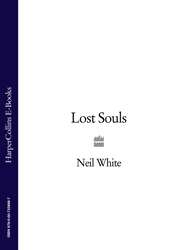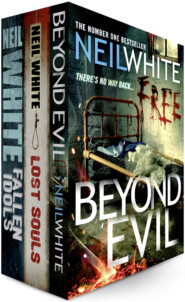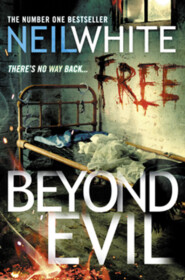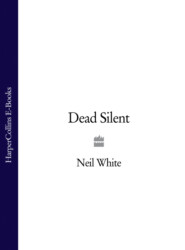По всем вопросам обращайтесь на: info@litportal.ru
(©) 2003-2024.
✖
FALLEN IDOLS
Автор
Год написания книги
2019
Настройки чтения
Размер шрифта
Высота строк
Поля
David Watts was at the front of his apartment building, facing cameras and reporters. They had been outside there for a few hours, hungry for a quote.
‘I just want to say that I knew Henri Dumas. He was a good player. No, a great player – but above all of that, he was a good man, and football will miss him. I’ll miss him. I would like to express my condolences to his family, and I’m sure the footballing world is in deep mourning right now.’
And at that, he went back into his building. He didn’t feel good. His words sounded irrelevant when he thought about Dumas; just a token footnote. Dumas was dead. Who cared about his condolences?
When he got back to his apartment, he saw the parental look of his agent. She watched the press disappear from the window, and then turned back to the room.
‘That will get you good billing on the news, remind everyone that you’re the statesman of English football.’
He shook his head at her. Karen Klavan. She was a good agent, but she was one cold-hearted bitch. She looked like a pin-up, blonde hair and breasts like weapons, but he guessed that when she fucked, she did it with a motive, not a passion.
‘Someone died today, Karen. Doesn’t that mean anything?’
‘It means you get a chance to raise your profile.’ When she saw the look of disgust, she said, ‘You worry about Dumas, and I’ll worry about making you money.’
He would have smiled normally. Her directness gave her an edge in negotiations, but he wasn’t in the mood. And as he looked over to the billboards again, as he thought about the gossip magazines for sale in the shop just down the road, as he imagined all the children wandering around the country with his name on the back of their shirts, he reckoned his profile was pretty high already. He didn’t want to use Dumas’s death to raise it higher. The thought of it sickened him.
‘I think we should look respectful, take some time out,’ he said, his anger snapping the words out.
‘Yeah, yeah, that too, but look, I’ve got you a slot on breakfast television, to talk about Dumas. Is that okay? It won’t clash with your training.’
He shook his head. She made him money, but she made him mad as well.
‘I’ll end up tired at training.’
‘The country will forgive you if you’re jaded. In fact, they might be furious with you if you look bright and bubbly when you play.’
‘I take it Dumas wasn’t one of your clients.’
‘Can you hear me sobbing? No, he was with that prick Newcombe.’
And then she laughed.
Laughs didn’t come naturally to her, so when they came, they came loud and shrill.
‘He’ll be crying into his vodka tonight,’ she said, ignoring David’s look. When he didn’t respond, she said, ‘You’ll be picked up at five. Be up and ready, dressed soberly.’
‘Where will you be?’
‘Oh, out and about. I’ve some new clients to see, so I’ll be away for a couple of days. I’ll keep in touch.’
‘If you leave it a bit longer, you’ll be able to dance on Dumas’s grave.’
She winked at him and then picked up her bag, not bothering with goodbye. She could tell he was angry. Worse than that, though, was the thought that she didn’t care. He was just an asset, and she had him tied into an agency agreement. He was twenty-eight, so he didn’t have too long left at the top. In a few years’ time, when some younger star started to grab the headlines and his hamstrings were ripped to hell, she’d shunt him off her books as quick as one of his crosses.
When the door clicked shut David turned back to the window, hoping that the view would make him forget about Karen Klavan. He knew she didn’t care about him. He wasn’t sure she cared about anybody.
SIX (#u1d220fda-349c-55ef-a6a0-695b99a8a5f9)
Any warmth Laura had when she left the bar disappeared as she went through the swinging double doors of the autopsy room. Thirty-eight degrees Fahrenheit. Warm enough to work, cool enough to stop bad things from multiplying. The room was a purpose-built unit, a step above the dusty hospital wings used by most police forces, with specially designed ventilation and plumbing, designed to keep the smells inside while letting the carcinogenics and acids out.
The room was already full. She saw Tom near the autopsy table, down by the feet, two green-faced detectives behind him, trying not to give in. The task force had been assembled quickly, and it was mainly those who were available rather than those who were the best for it. The two detectives on Tom’s shoulder were young and ambitious, one dressed like a fashion victim, with big collars and bleached tips, his face pink from a bad shave, all except for the little triangle he left deliberately, just under his lip. The other was old-style bully boy, dressed in a black leather coat, his hands thrust in pockets, his stance aggressive. His hair was crew-cut short and his stare hostile. They were trying to crack jokes to distract themselves, but nothing they said was particularly funny. She nodded at Tom and he gave her a small smile back.
Laura stayed near the head. It was closer to the action, but those at the feet got the smell, that mix of warm meat and chemicals, carried there by the ventilation. Tom had been in the job too long to be bothered by the smell, but the other detectives had been too keen to stand by him.
Tom lifted a small bottle of wintergreen oil, used by many to mask the smell of the dead. She shook her head. Laura wanted to smell the dead, just so that she could feel the pain. It would make her work all the harder.
Laura didn’t say anything, just let the pathologists wander round the body, speaking notes into the overhead microphone. There were two there, checking that nothing was missed, knowing that this would be a high-profile case. The one looking closely at the body was fifty and dignified, with a gentle face looking from behind half-moon glasses. The other was younger, a bookish-looking woman, with pulled-back dark hair and a pointed nose.
Laura looked over to the wall and saw evidence bags stacked up. She could see the woman’s clothes along with her body bag, bagged and tagged, part of the continuity. Important pieces of evidence can come off the body in transportation, nestling in the bottom of the body bag.
The woman was naked on the aluminium table, young and pale. Laura checked that the men weren’t looking too hard. She noticed a half-finished tattoo on the woman’s shoulder blade. The outline was done, two lovebirds intertwined, but the colours had yet to be added. It was details like that which always made Laura sad. They were part of a life in transit, so many things still to do, but something went wrong which left her naked on that table.
Laura saw the male detectives look away with a grimace when the pathologist picked up a syringe. They knew what was coming next. So did Laura, but she steeled herself.
The needle was plunged into the girl’s right eye and a sample of fluid was drawn out. Laura knew why it was being done, to test the potassium levels in the eye to get a more accurate time of death, and she had a strong stomach, but it always made her shudder.
The cause of death was easy to determine. She could see the brown mark around the neck where something had been pulled tight. She knew what the eyes would show: burst blood vessels, tiny red pin-pricks, the telltale signs of strangulation.
Tom indicated with his head that they should talk outside. As he stepped away, Laura saw the two detectives nearby instinctively step with him, but they were told to stay put and keep an eye on the proceedings.
Outside the swing doors, Tom asked, ‘How did you get on with your reporter friend?’
Laura felt herself blush slightly.
‘He didn’t know anything about Dumas, but he says he will make some discreet enquiries.’
‘Can he be trusted?’
Laura nodded. ‘Yeah, he’s okay.’
They both turned around quickly when the doors burst open. It was Fashion Victim.
‘Sir, he’s found something.’ He looked breathless, excited.
Laura and Tom exchanged glances, and then headed for the doors. Tom got to them first, and as Laura passed the detective he whispered to her, ‘It’s past your bedtime, McGanity. Shouldn’t you be tucking in your little boy?’
Laura felt her chest heave, a burst of emotion, felt her eyes fill up, more from anger than anything else. She knew she attracted jealousy. She was young for a detective, still in her late twenties, a university degree her background rather than years in the force, and she expected some comments. But that had hit a weak spot.
Didn’t he think that she thought that every time she left the house, every time her little boy waved her goodbye when she left him with her mother? But she had fought hard to be a detective, against every jibe she had suffered about being a university girl, against every macho man who thought it was man’s work, the sort who watch reruns of The Sweeney and spend their spare time wondering why their wife has just left.
She pushed past him, her cheeks flushed, and went back into the autopsy room. Fashion Victim was still smiling.
When she got alongside Tom, she saw him looking at something the pathologist was holding up. It twirled and twinkled under the spotlight over the table.
It was a gold chain with thick links, with some kind of a medallion hanging from it, maybe an inch across. Laura peered closer, trying to refocus on the investigation. As she looked, she thought there was something familiar about it. The chain was thick, but it was a Celtic weave, not gangsta links. Then she realised why she recognised the medallion. She’d had one very similar as a child.
The medallion was a Celtic symbol, three curls meeting in the centre, embossed deeply into a disc.











